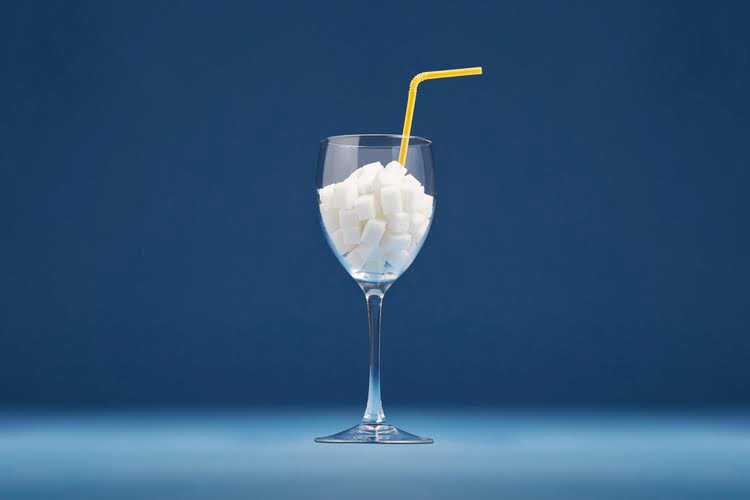What Helps With Alcohol Withdrawal? 18 Tips
The health benefits of even a month without alcohol may surprise you. If you’re thinking of cutting back, this can be a great way to test things out, or get started on your journey. For some people, alcohol has been or continues to be a problem in their lives, and they have chosen to avoid it. For others, it seems to fulfill an ordinary social role—easing communication, Sober House helping them feel relaxed in new situations, or simply helping them unwind after a long day. However, the boundary between healthy and unhealthy alcohol use can sometimes get blurry. Any of these medications can make a big difference in battling physical addiction, making the psychological parts of alcohol dependence easier to work through.
Medication To Stop Drinking
Identify specific situations, emotions, environments, and people that motivate your drinking. Examples of triggers could include stress, social gatherings with alcohol, certain friends, and bars. Before you attempt to quit alcohol, it is https://theohiodigest.com/top-5-advantages-of-staying-in-a-sober-living-house/ critically important that you first consult with a medical professional. Start by estimating how much you drink on a daily basis—and be honest with yourself. It can help to make use of standard drink measurements, as mentioned above.
Effective Monitoring Strategies During Alcohol Tapering
- Creating a tapering schedule you can stick with is a crucial part of weaning yourself off alcohol.
- This helps to minimize withdrawal symptoms and make the process more manageable, particularly for individuals who have been consuming alcohol regularly and in higher quantities [3].
- But maybe you’re unsure about quitting completely and don’t want to hold yourself to that goal.
It’s crucial to consult with a healthcare professional before starting an alcohol tapering plan. Tapering off alcohol is a critical step for individuals dealing with alcohol dependence. This process involves gradually reducing alcohol intake over time, which can be a safer and more effective method than abruptly quitting. It’s important to note that tapering alcohol should be done under the guidance of a healthcare professional to navigate potential challenges safely.
![]()
Developing a Tapering Plan

Remind yourself of why you want to cut back, talk to a friend about it and distract yourself with a hobby or exercise, the NIAAA suggests. Food can absorb the alcohol in beverages, so eating before or even while you drink can dampen the effect and may make you want to drink less, says Crews. A standard glass of wine is 5 ounces, which contains about 12% alcohol.
Examine alcohol health effects
Tips to help you stay alcohol- or drug-free, including advice on coping with cravings and triggers, and refreshing your recovery goals. Like deep breathing, meditation can help you stay balanced and relaxed during your withdrawal. At times, it’s easy to forget why you entered recovery in the first place.
The experience of withdrawing from alcohol can be uncomfortable and difficult. Some people may relapse, or drink alcohol again, to relieve the symptoms. Avoid people who may encourage you to drink alcohol or may not support your decision to stop.
- It works by reducing the pleasurable effects of alcohol, blocking the reward cycle in your brain that can lead to runaway consumption.
- Substituting a prescription drug for alcohol should only happen with the help of a medical professional.
- If you have a severe alcohol addiction, it might be best to seek professional addiction treatment.
- How to use the naloxone nasal spray (Nyxoid), which reverses the effects of opioid drugs like heroin, morphine, methadone and fentanyl.
There are now several evidence-based solutions for alcohol addiction—and one of them is bound to work for you. Alcohol can stay in your system for several hours depending on how much you drink. Once it begins to leave your body, early symptoms of withdrawal begin. Tapering can help you overcome alcohol dependence, which is a side effect of chronic alcohol use that causes cravings and withdrawal. Detox doesn’t treat addiction, which is a disease characterized by compulsive behaviors, such as chronic alcohol use.
Build a Sober Community of Support
- You may also find it easier to stick to your taper schedule if you avoid certain places and situations.
- Then come up with a reduction rate you think will be safe, and that you can stick to.
- Depending on how much you drink, tapering off alcohol can take one to several weeks.
- Symptoms of delirium tremens can develop within 48 hours and, in some cases, have fatal consequences without proper treatment.
The taper schedule must be flexible to accommodate individual responses and progress. It is important to monitor withdrawal symptoms closely and make adjustments to the tapering plan as needed. If an individual experiences severe withdrawal symptoms, such as increased anxiety, shaking, or signs of delirium tremens, it may be necessary to slow down the tapering process. Conversely, if the individual tolerates the reduction well, the pace of tapering may increase. However, the efficacy of tapering alone without medical supervision is questionable, as studies show that withdrawal symptoms can persist despite the gradual reduction of alcohol use. An alcohol taper can be effective in beginning recovery and help set a realistic goal for those not ready to quit alcohol completely, but they’re not for everyone.